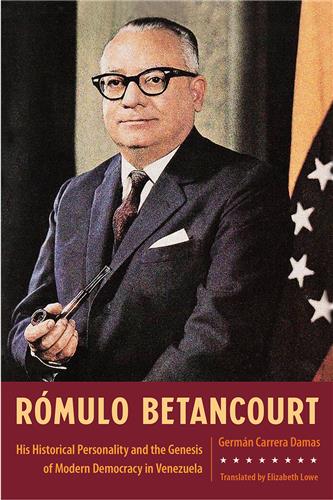Cuba's Foreign Relations in a Post-Soviet World
H. Michael Erisman
Foreword by John M. Kirk , Series EditorPaper: $24.95
- Series: Contemporary Cuba
"Kudos to Erisman for a timely, provocative, and persuasive analysis of Cuban foreign affairs. This book should be required reading for policy makers in Havana and Washington, for Latin American and Caribbean specialists, and for all those intrigued by the survival of the Cuban Revolution into the 21st century."--John W. Cotman, Howard University
In his analysis of the broad scope of revolutionary Cuba's foreign relations, H. Michael Erisman emphasizes two key aspects: Cuba's adjustment since the disintegration of the Soviet Bloc and the ongoing confrontation between Cuba and the United States. Using revolutionary Cuba's foreign relations as a case study in counterdependency politics, he proposes that the country has always been highly sensitive to the danger of overdependence on an external power and examines Havana's implementation of this stance in both the Cold War and post-Cold War periods. As the first comprehensive single-author treatment of the subject, Erisman not only tells readers what happened to Cuba's foreign relations but also offers a basis for understanding them.
H. Michael Erisman is professor of political science at Indiana State University.
No Sample Chapter Available
"One of the first serious attempts to explain the re-articulation of Cuban foreign policy in the 1990s, after the end of its special relationship with the former socialist bloc. Should be of relevance to specialists, students and all readers interested in Cuban foreign policy and the evolution of the Cuba- US conflict." - International Affairs
--International Affairs
" Erisman's detailed comparison of foreign politics from before and after the fall of Soviet communism demonstrates that Cuba has remained committed to and excels at "counterdependency" strategy- one that applies shrewd diplomacy and economic resourcefulness to resist the restoration of US hegemony. " Choice magazine.
--Choice
:a judicious and in-depth analysis concerning Cuban foreign policy in both the Cold War and post-Cold War period." "This book is important because it is the first comprehensive analysis of Cuba's pragmatic foreign policy since the dismemberment of the Soviet Union. Erisman is to be congratulated for producing an exhaustive and provocative study, which is a welcomed addition to the literature of Cuban international relations." - Florida Historical Quarterly
--Florida Historical Quarterly
"A solid, scholarly analysis of Cuban foreign relations. . . . The analysis is fresh, provocative, and well grounded empirically. This is a solid work that provides ample background material and proceeds carefully. As such, it would serve well for senior and graduate level courses as well as for the general reader."
--Latin American Politics and Society
"Prompted by the disappearance of the Soviet Union . . . This latest book is an excellent and thoughtful work on explaining Cuba's reaction to this situation. It would be of great benefit to anyone interested in Cuban foreign policy and shows very good value at $24.95."
"thoughtful and insightful"
--The Latin Americanist












